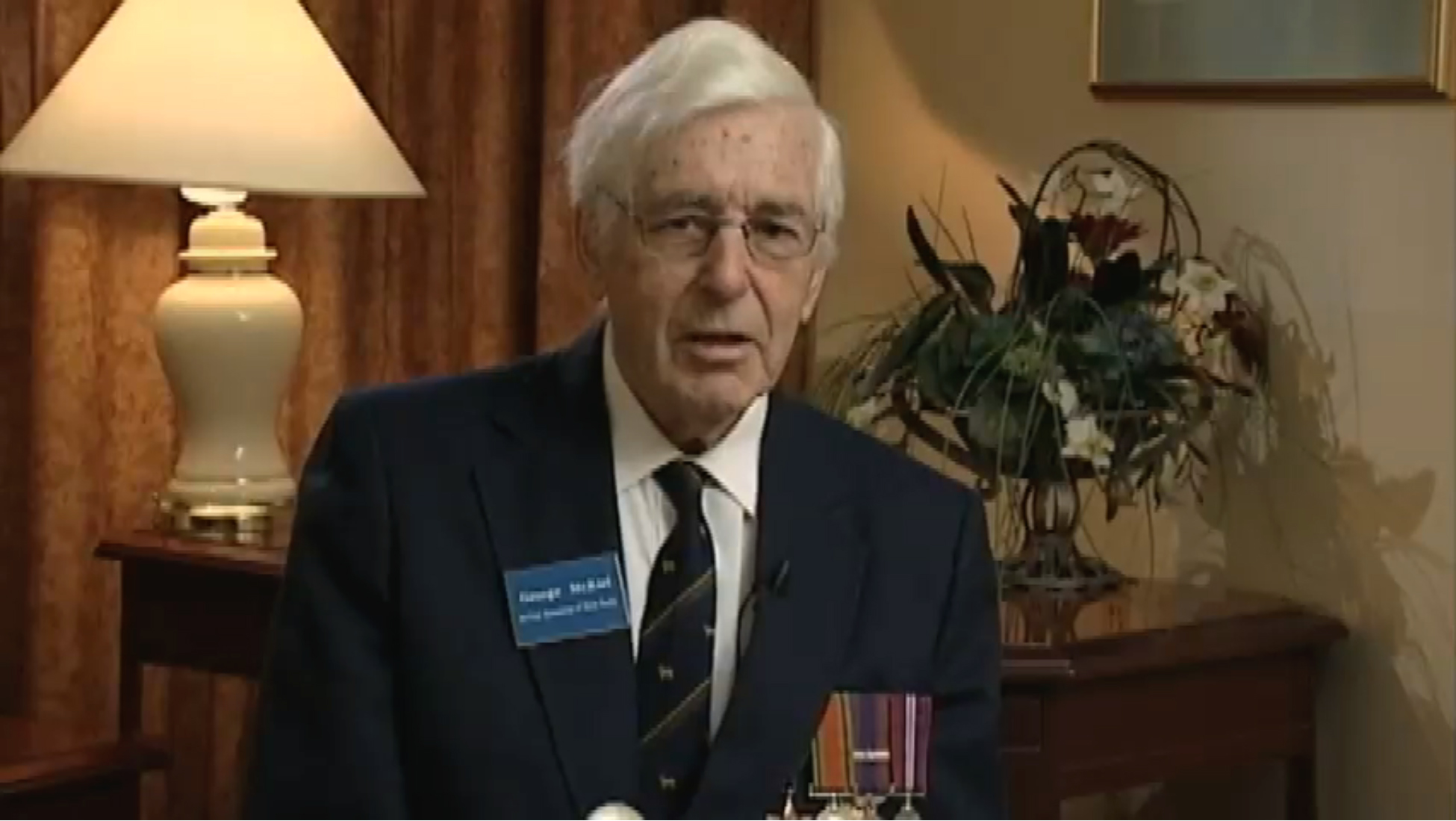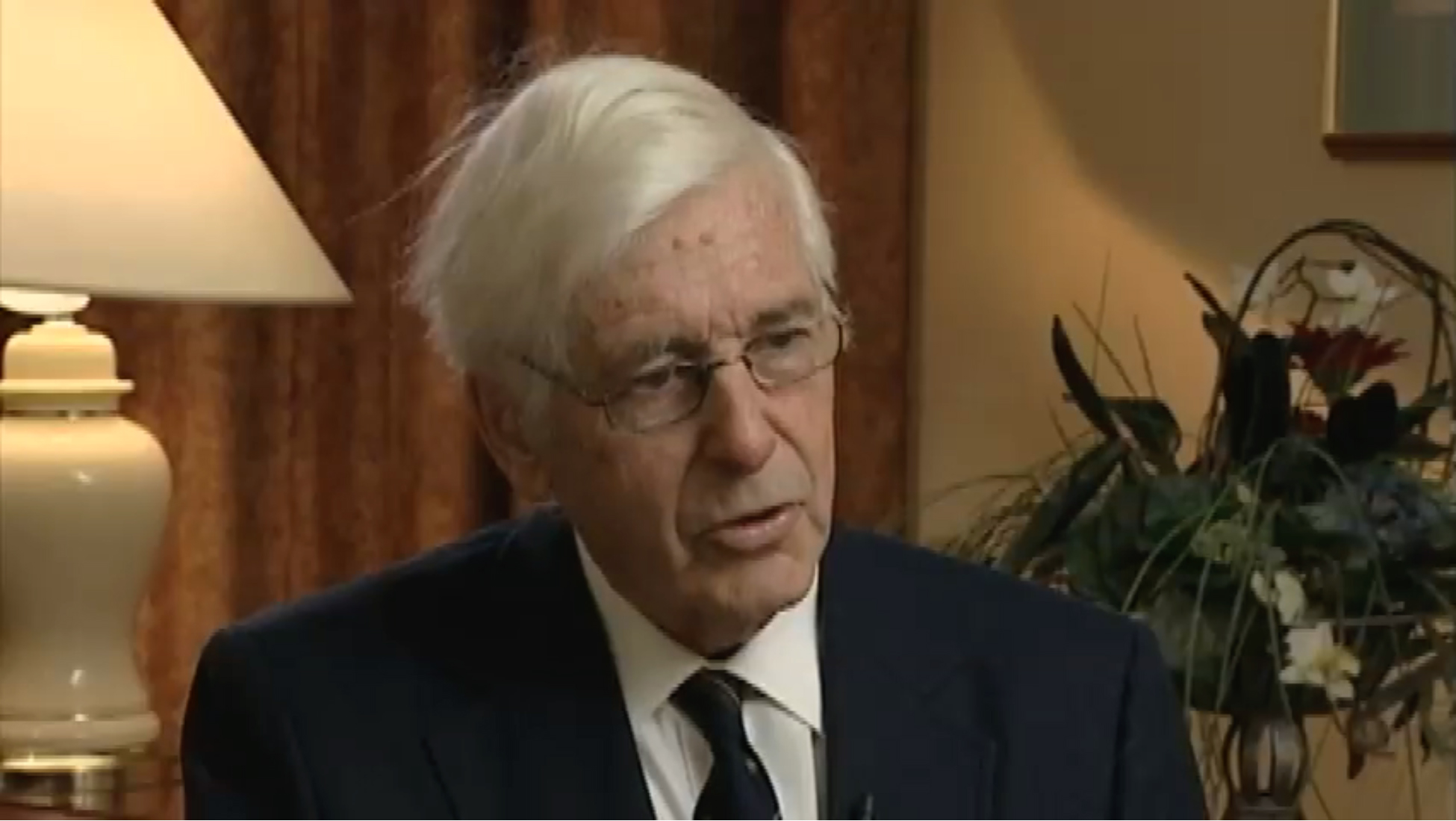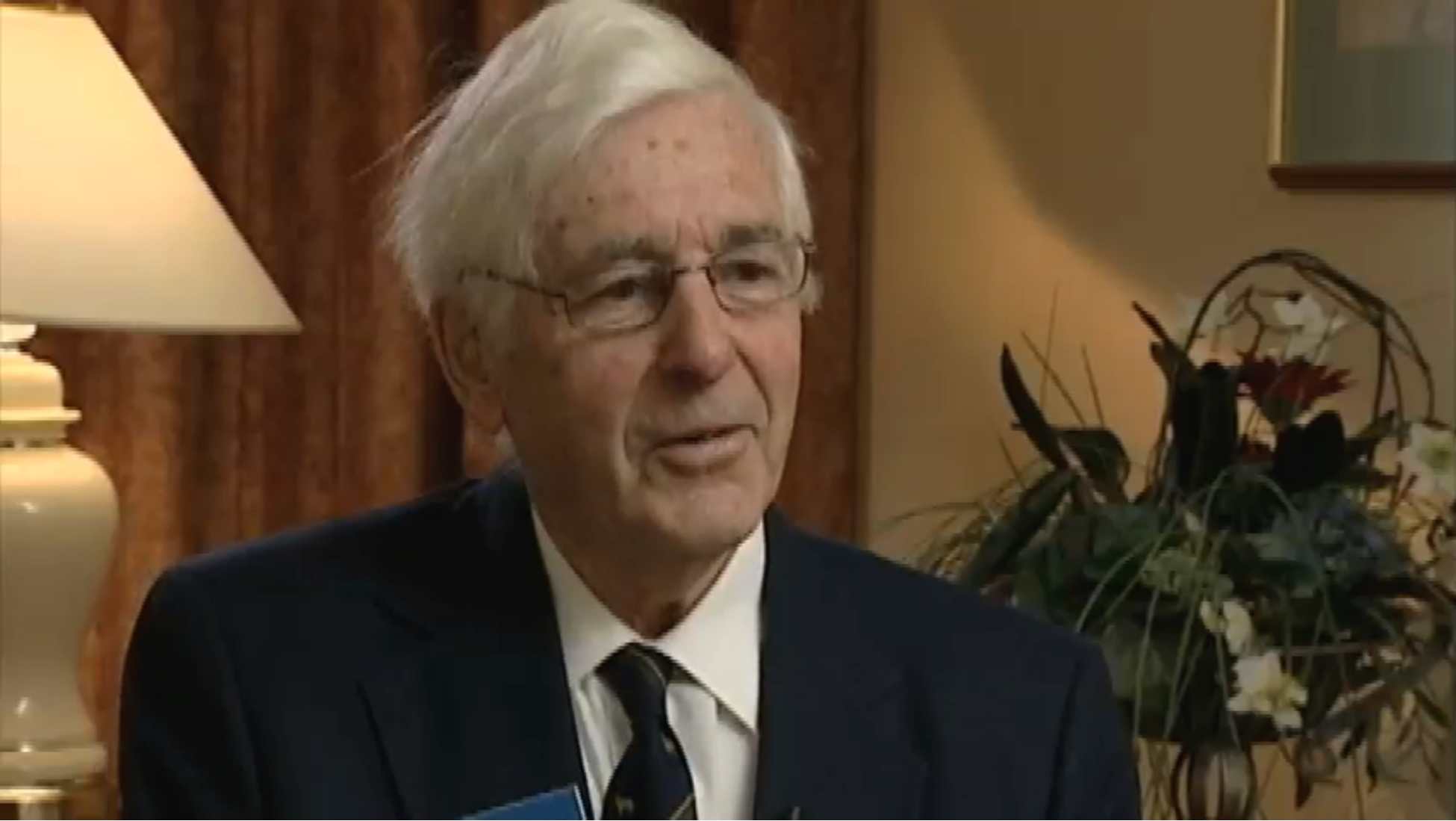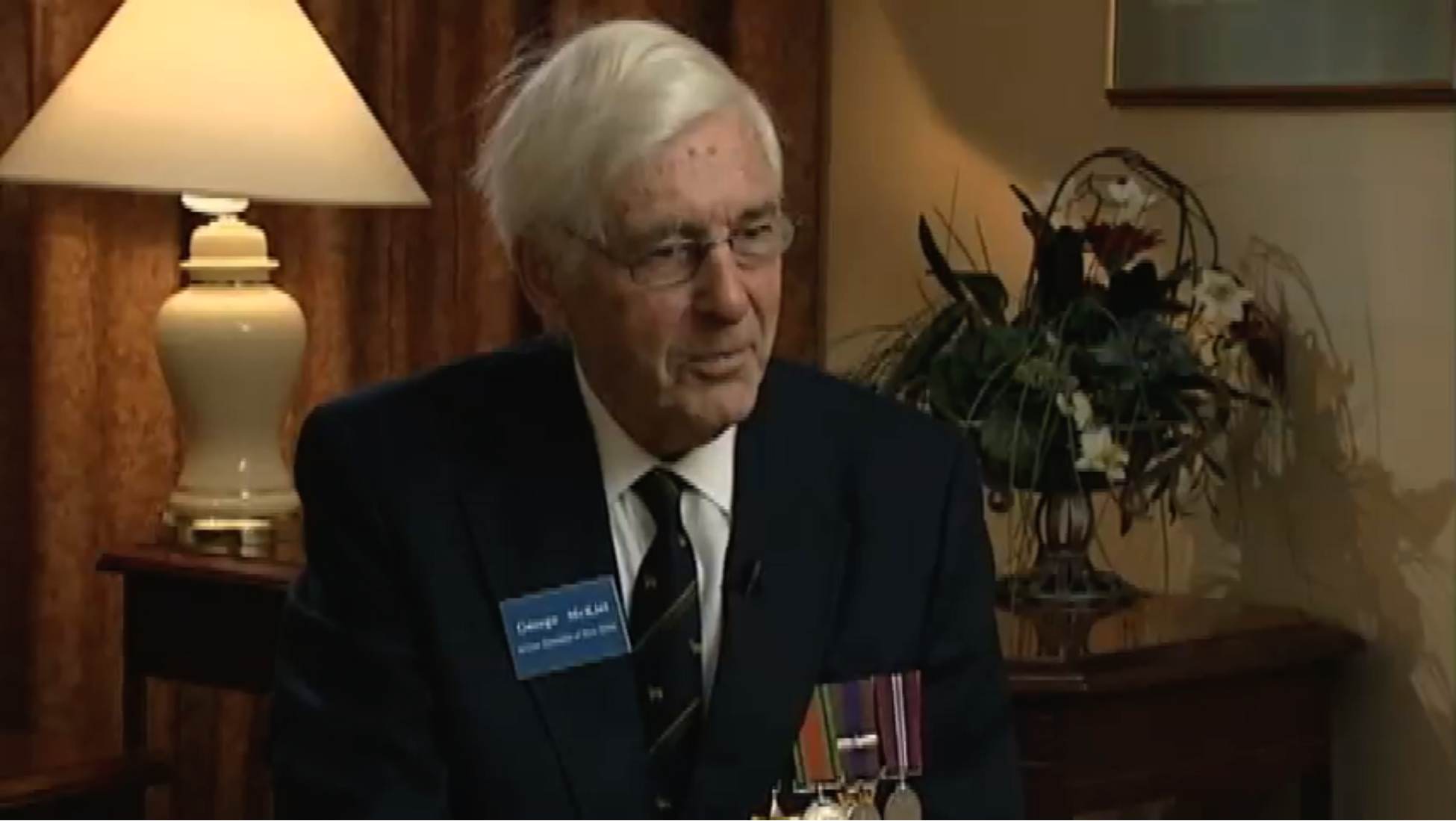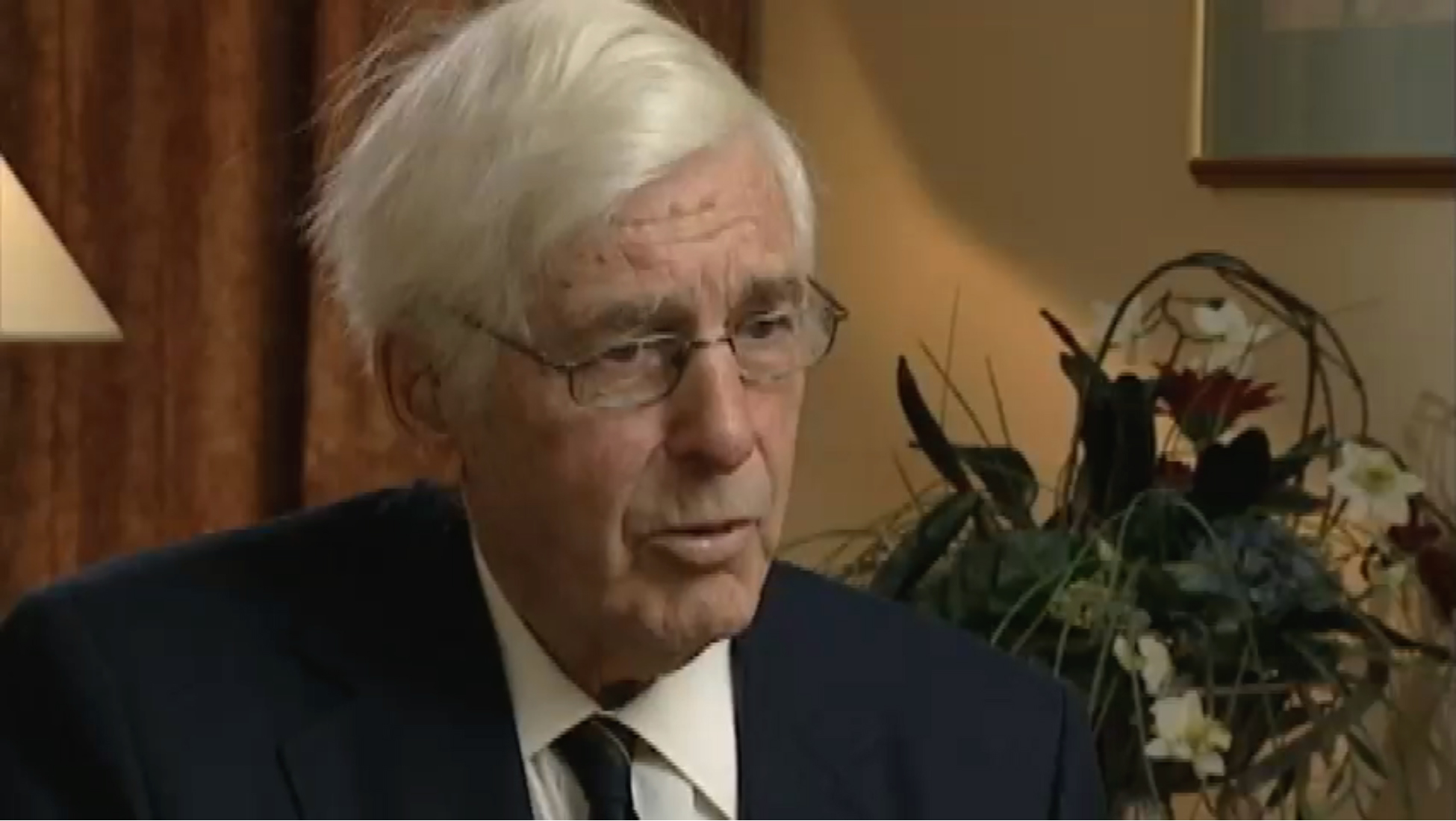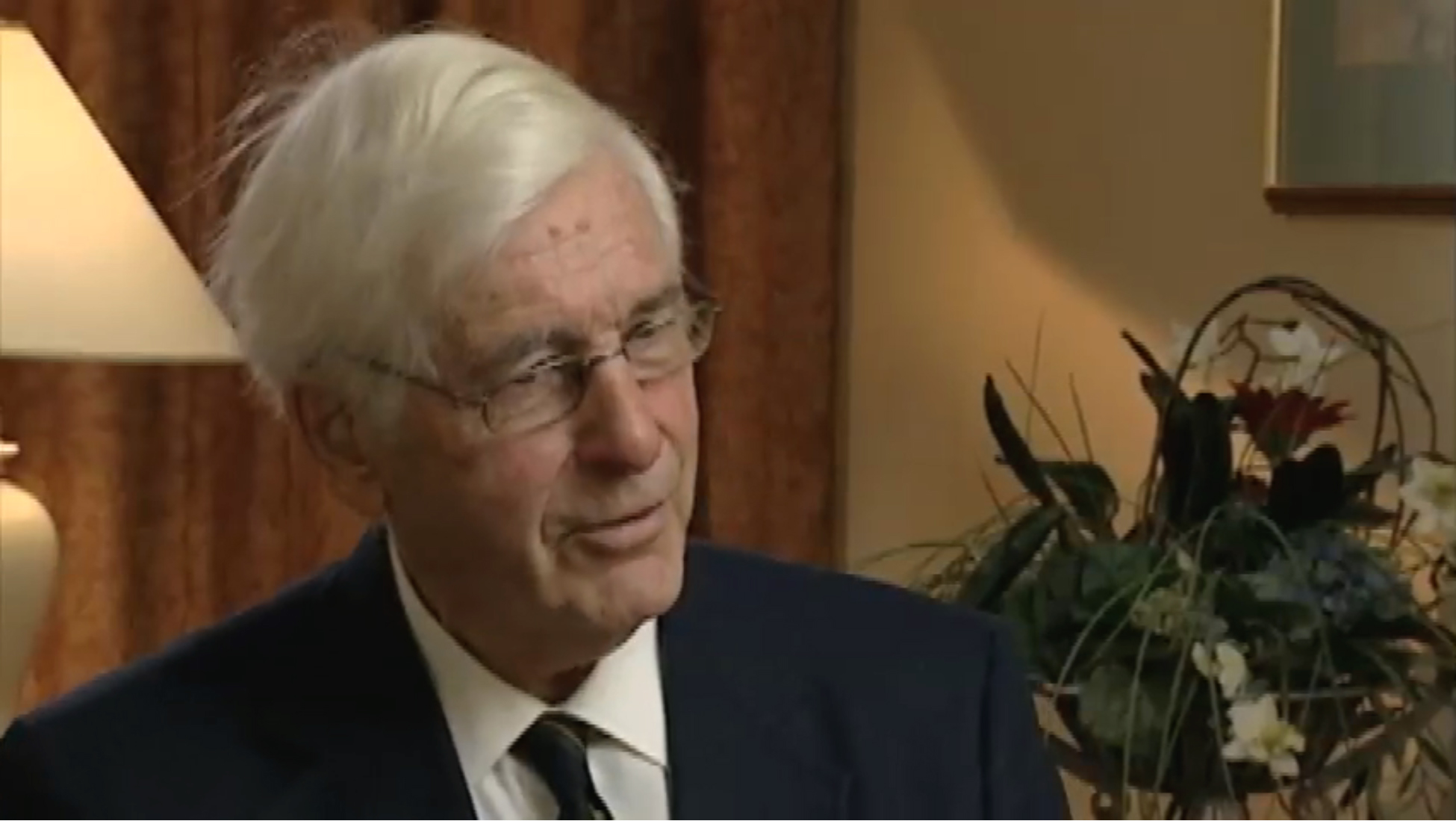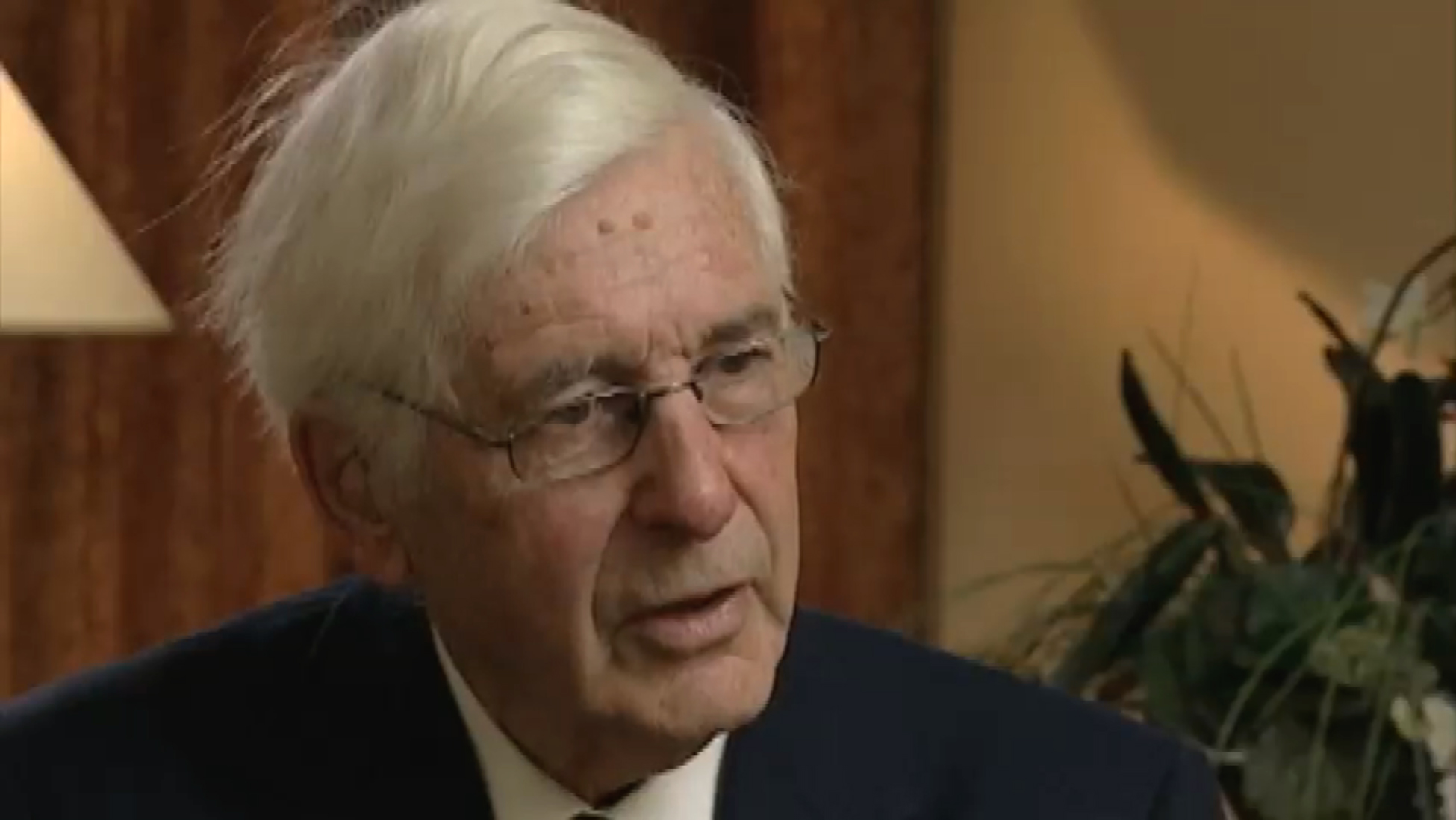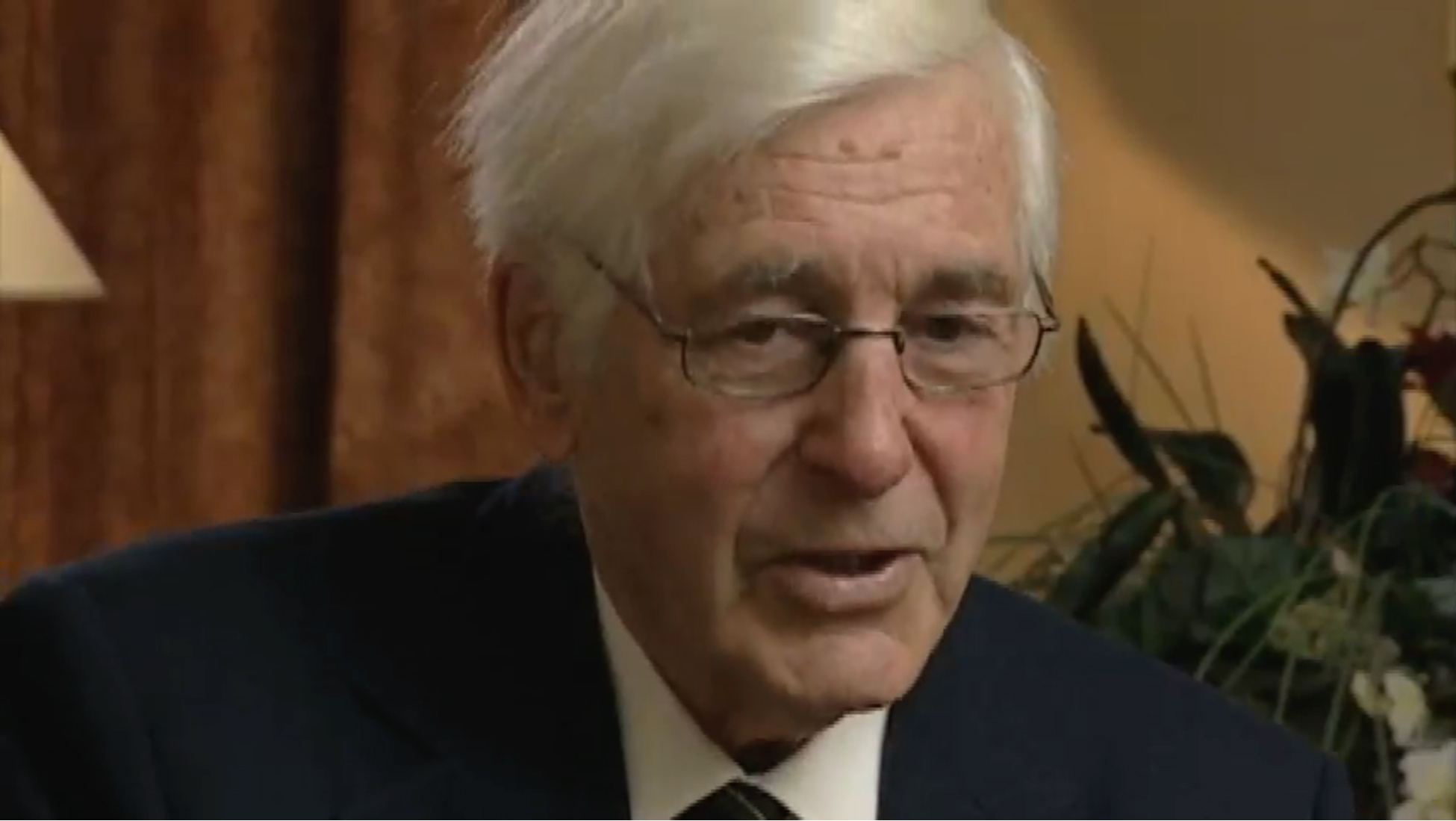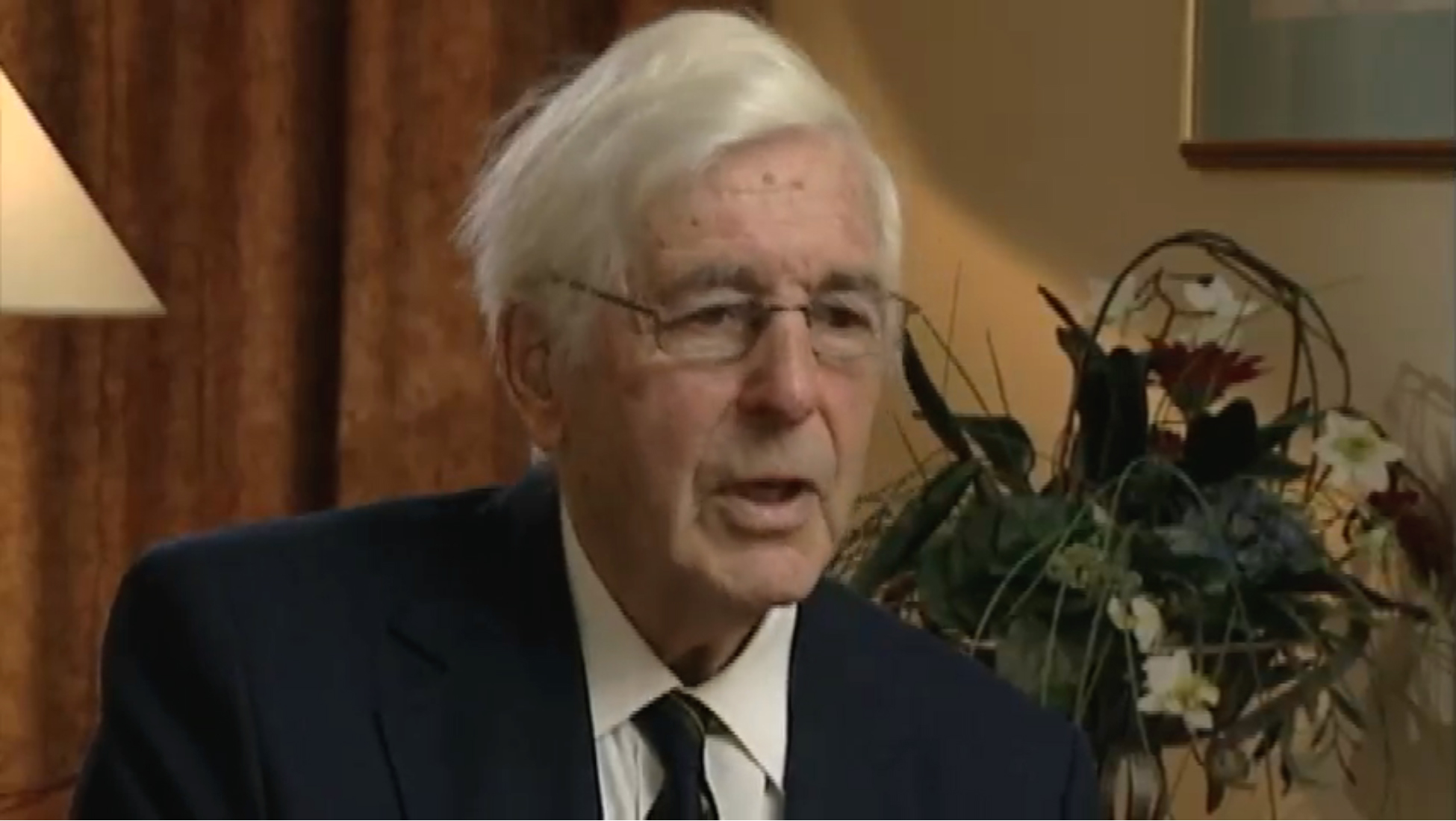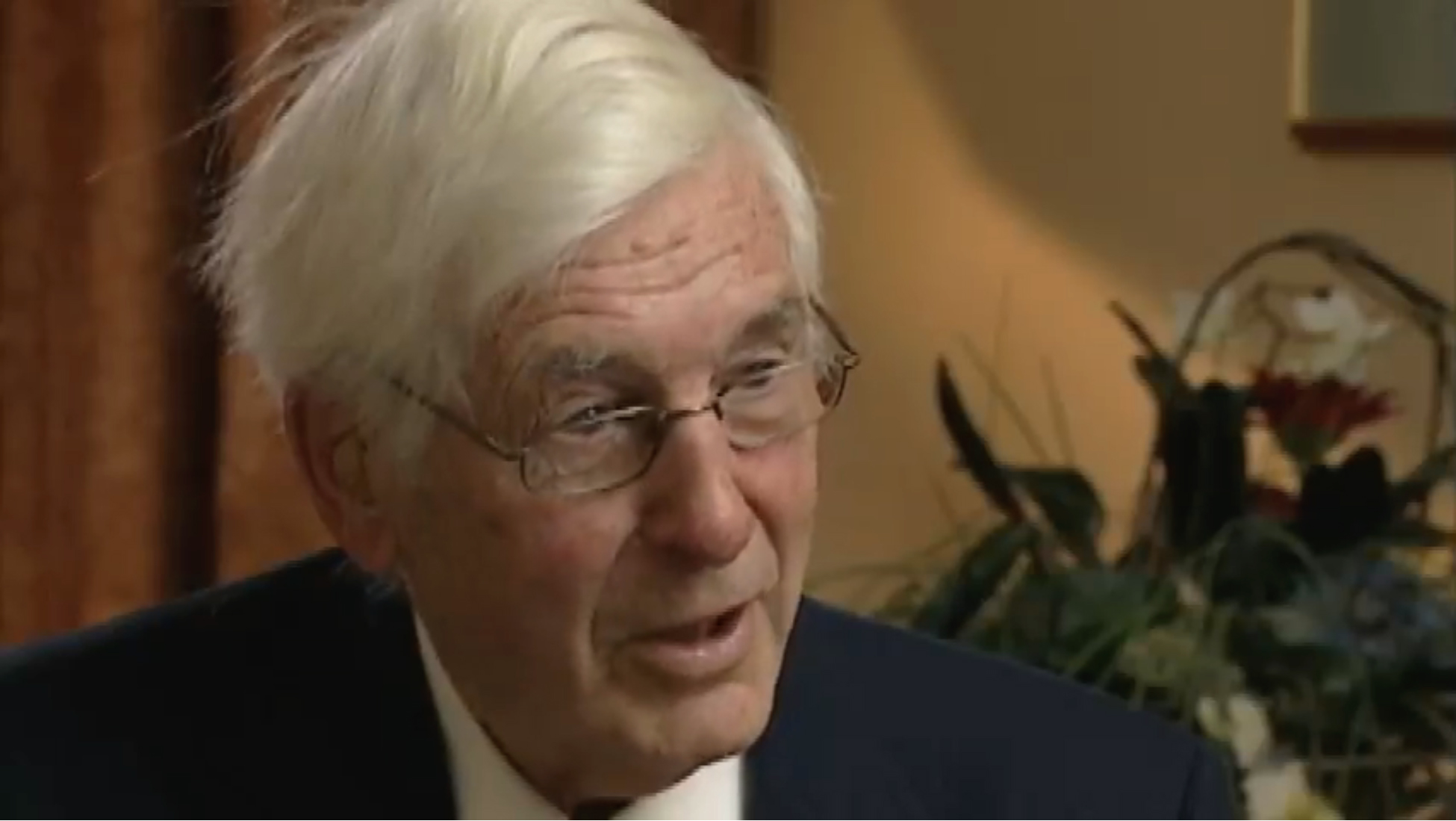Over the course of the summer of ‘43, '44, conditions got worse
and worse. They crowded more prisoners in on us. They
eventually decided, and this happened actually just before the
great escape, they suddenly said, "Okay, we've got a new
compound built, and we're going to move all the Americans."
Well, many of the Americans had worked on the tunnel,
and they were kind of reluctant to go, but they had no option,
so they were moved to another compound. And then, over the
course of the summer, we were suddenly finding out, well, sorry,
the Red Cross food parcels are not coming through, as well.
So, this, this next few weeks we're only going to have half a
parcel a week, and then a few weeks later, we're down to a
quarter of a parcel a week. And then the Brits came or,
at least, I guess it was the Swiss, came up with a suggestion.
They said, "You know, we've accumulated masses of food
parcels here in Switzerland, and most of the camps are scattered
across Poland, prisoner of war camps. Why don't you allow British
prisoners to drive trucks who can come into Switzerland, pick up
the Red Cross food parcels, and then take them to the camps."
So, they did, they bought that, and for several months we had
food parcels reinstated, which was a great boon to us. But over
the winter months, it finally got to the point where times were
really tough because we weren't getting any coal for the stoves,
we no longer had bed boards to burn, and food was virtually
non-existent, or if it was, it was a rotten turnip soup or some
horrible thing such as that. And then, suddenly, we began
to hear a lot of activity because we had a radio secreted.
A small walking group had been taken outside of the camp
and given the chance to get some exercise, and they bribed
the two guards that were with them and said, "There's an
aircraft came down, close by. We'd just like to have a look
at it." And, so, the guards said, "Well, what are you going to
give us for making that kind of a privilege." And they said,
"Oh, we got lots of cigarettes or chocolate, whichever you like."
And, so, they said, "Okay, you can have a few minutes to look at
the aircraft." When they got inside, they quickly found that
the radio was still in there, intact. They dismantled it and
hauled it back to the camp and reassembled it, and we had
daily BBC news. And they would listen to the radio and then
they'd send a courier with the read out message once
the particular barrack block had been cleared that there
had been no Germans nearby.



